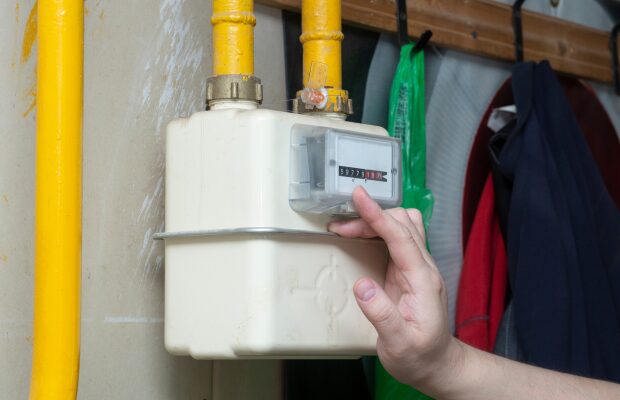Finding a property in London where pets are allowed can sometimes be a struggle for renters in the capital.
Indeed, as recently as 2020, it’s estimated that only 7% of UK landlords listed their rental properties as ‘pets allowed’.
In this guide, we’ll outline everything you need to know about renting in London with a pet, including some top tips on how you can improve your chances of being accepted…
What are the rules on renting with pets?
There are no specific laws in place when it comes to renting with pets.
Ultimately, landlords can decline requests from tenants to keep a pet if they have a valid reason to do so.
Your landlord, therefore, could decline your request if:
- They believe your pet is too large for their property
- They, or other tenants, have allergies
- They have concerns over potential noise
Potential changes to rules around renting with pets
The Dogs and Domestic Animals Accommodation Protection Bill proposes to make changes that could allow more tenants to keep pets in rental properties.
When the Bill was announced, the government updated its model tenancy agreement with a clause that allows pets as a default.
So, any landlord using the model tenancy agreement now has to object to a tenant’s request to keep a pet within 28 days and provide a valid reason for declining that request.
The Bill also makes other proposals aimed at benefiting both tenants and landlords when it comes to renting with pets…
1. Certificates of guardianship
As peace of mind for landlords, the Bill proposes that tenants who wish to keep a pet have a certificate of responsible animal guardianship.
The certificates would be issued by registered vets after a ‘responsible ownership test’ was carried out.
The vet would check:
- That the pet is microchipped in the case of cats and dogs
- The pet has been de-wormed and de-fleaed
- The pet has had all required vaccinations
- The pet’s ability to respond to commands
All pet details would also be held on a database, with microchipping for cats and dogs mandatory.
2. Pet insurance
Since the Tenant Fees Act 2019, landlords and letting agents have been unable to charge fees to tenants, upon which the grant of a tenancy are contingent, apart from deposits, holding deposits and rental payments.
The Bill, however, proposes to allow landlords to charge tenants a pet insurance fee, covering any potential damage caused by pets.
That means a tenant would be permitted to take out an insurance policy covering any damage caused by their pet – but they wouldn’t be compelled to do so.
3. No automatic rights for tenants
If the Bill were to become law, tenants wouldn’t have an automatic right to keep a pet at their rental property.
However, landlords would only be able to decline requests from tenants with responsible guardianship certificates if their pet was deemed a risk or nuisance to other people.
4. Landlord exemption certificates
Under the Bill, landlords would be able to apply for an exemption certificate if:
- They, or another tenant, has a religious reason for not coming into contact with domestic animals
- They, or another tenant, has a medical reason for not encountering domestic animals
- Their property is deemed unsuitable for domestic animals
Is it hard to find a pet-friendly flat in London?
The biggest problem with finding a flat to rent in London that accepts pets is the decision may be taken out of your landlord’s hands.
If your landlord only owns the property as a leaseholder, the decision on whether pets are allowed to be kept in the building’s flats actually lies with the freeholder.
If the freeholder has a clause in the building’s lease that bans pets, your landlord would be unable to rent their property as ‘pet-friendly’.
If you are renting through a letting agent, they should be able to clarify if pets are permitted by the freeholder.
How to rent with a pet: Great tips for tenants
1. Provide proof that your pet won’t be a problem
Should the Dogs and Domestic Animals Accommodation Protection Bill become law, you may require an official certificate of responsible guardianship to rent with a pet.
And if you’re looking to rent with a pet right now, being able to provide your landlord with proof of vaccinations might help your case.
2. Get references from previous landlords
If you’ve been able to rent a property with your pet before and it was a good experience for your landlord, ask them for a reference when you move on.
Approval from a fellow landlord is one of the best ways to show that your pet is no trouble.
And if you live near to the property you’re looking to rent, why not invite your potential new landlord over so they can see how well your pet behaves in your current property.
3. Offer to pay for pet insurance
The Tenant Fees Act 2019 means landlords are only allowed to request a deposit of five or six weeks’ rent – making requesting a bigger deposit to cover any potential pet-related damage legally impossible.
By offering to cover a portion of your landlord’s insurance to cover any damage, they may be willing to allow you to keep your pet.
4. Offer to pay for a post tenancy deep clean
One of the biggest concerns for landlords when assessing whether to grant a tenant’s request for a pet is cleanliness at the end of their tenancy.
Many animals shed hair and some can cause a certain amount of mess, but by offering to organise and cover the cost of a deep clean when your tenancy is over, your landlord may be willing to grant your pet request.
Many cleaning companies are specialists in removal of pet hair, dirt and animal odour.
5. Don’t breach your tenancy agreement
If your landlord refuses your request for a pet, this should be outlined in your tenancy agreement.
If you decide to keep a pet behind your landlord’s back, you could be in breach of your tenancy agreement and your landlord may have grounds to evict you.
6. Ask for permission in writing
If you’re requesting to keep a pet and you’re in the middle of your tenancy, ask your landlord to put their permission in writing or amend your tenancy agreement.







